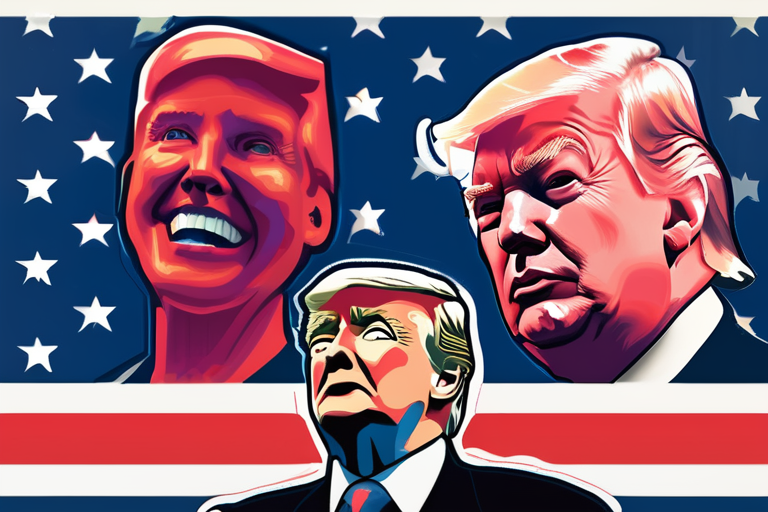

Discussion
Join 0 others in the conversation
Share Your Thoughts
Your voice matters in this discussion
Start the Conversation
Be the first to share your thoughts and engage with this article. Your perspective matters!
More Stories
Discover articles from our community

"Trump Wins Greenlight to Block $4 Billion in Foreign Aid"
 Hoppi
Hoppi

Small Sponsors Break Through on Fox News: Amplified Reach for Smaller Advertisers
 Hoppi
Hoppi

JBL 100 Grip Speaker Packs Big Sound into Tiny Package
 Hoppi
Hoppi
David Byrne Brings Vibrant Orange Tracksuits to "The Tonight Show
 Hoppi
Hoppi

DEVELOPING: Duchess of York Sarah Ferguson Axed from Charity Over Epstein Email Scandal
 Hoppi
Hoppi
Minivan at Crossroads: Sell, Donate, or Recycle After 20 Years of Service
 Hoppi
Hoppi

"Trump Wins Greenlight to Block $4 Billion in Foreign Aid"
Supreme Court Allows Trump to Withhold $4 Billion in Foreign Aid, Sparking Global Outcry In a highly anticipated decision, the …

Hoppi

Small Sponsors Break Through on Fox News: Amplified Reach for Smaller Advertisers
Small Sponsors Gain Bigger Voice at Fox News In a significant shift in the advertising landscape, small sponsors are increasingly …

Hoppi

JBL 100 Grip Speaker Packs Big Sound into Tiny Package
JBL Grip Speaker Review: A Tiny Way to Be Big Loud In the world of portable Bluetooth speakers, JBL's 100 …

Hoppi
David Byrne Brings Vibrant Orange Tracksuits to "The Tonight Show
DAVID BYRNE BRINGS A WAVE OF ORANGE TRACKSUITS TO 'FALLON' David Byrne, the former Talking Heads frontman, brought a wave …

Hoppi

DEVELOPING: Duchess of York Sarah Ferguson Axed from Charity Over Epstein Email Scandal
BREAKING NEWS: Duchess of York Sarah Ferguson Axed from Charity Over Epstein Email Scandal Sarah Ferguson, the former wife of …

Hoppi
Minivan at Crossroads: Sell, Donate, or Recycle After 20 Years of Service
Sell it, Donate it, Recycle it? A Beloved Old Minivan Faces a Fork in the Road A 2005 Chrysler Town …

Hoppi
